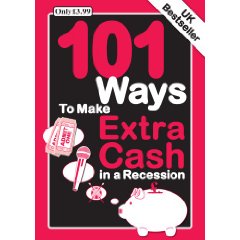It may sound like a crazy notion to increase your personal wealth by taking a pay cut – however can that work?
It’s simple really.
Most people have a limited income yet infinite needs and wants. They earn a fixed amount, or the household has a fixed monthly income, they spend, spend, spend first and save what is left over. I will be the first to admit that I used to “waste” money each and every month – bottled water (!), pre-packed sandwiches, not shopping around for more competitive insurance/utilities etc….
Result = there is rarely anything left over at the end of each month – “which runs out first, the month or the pay packet?”
It has been quoted many times (such as in The Richest Man in Babylon – a great book and worth the £3.46 price tag!) that those who build lasting wealth are those who SAVE first and then SPEND what is left.
By taking something off the top of each pay packet you can set this aside, firstly to build a “rainy day fund”, and then to consider medium and long-term investments.
It will be difficult at first as the decrease in monthly income can be noticeable, but over time, your spending patterns will be altered to match your new “lower” income level and quite quickly you will notice the increase in your personal wealth.
How Noticeable Will This Be?
If you set aside just £50 per month, and invest it to receive a net return of 5% per annum (which should be achievable) over a ten year period this will grow to £7,764.
If you could achieve 7% net per annum, this would amount to £8,654; which if continued for a further 10 years would £26,046.
The more you save, the quicker it will grow.
My Experience
I am fortunate in that I earn a decent income and am able to set aside £700 per month. If I continue this level of investment, I am currently on course to achieve full financial independence by the time I am 50.
It’s hard at first, but after a while your lifestyle adapts to the “pay cut” you choose – I find I now plan purchases ahead – I got rid of my credit cards – it’s addictive (although I do still enjoy life to the maximum – I just don’t waste money any longer!).
Where Should You Start?
Simple really – just keep a track of what/where your money goes on a regular basis for the next month or so – then analyse and be strict with yourself –
- Do I really need to spend money on this item?
- Is there a more cost-effective alternative?
- What changes can I make in my lifestyle now to build the future I want rather than the future I currently have in-store?
Let me know you’re successes in “taking a pay cut” below.
